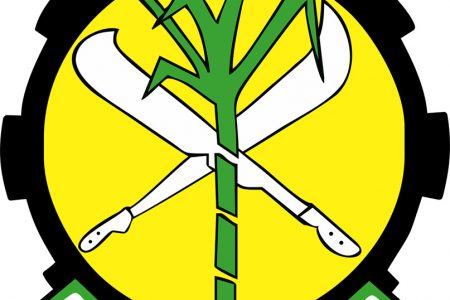The government is in the process of assembling a technical team to aid in the restructuring of the country’s sugar industry amid reports of strained relationships in GuySuCo and challenges in other areas.
Since coming into office in 2020, the government has channelled billions of dollars to rebuild the country’s sugar industry. However, last month, leaked audio of a board meeting gave the public a glimpse of the hostilities that existed between Chief Executive Officer Sasenarine Singh and the board, including former member Anthony Vieira.
In an exclusive interview with Stabroek News this morning at State House, President Irfaan Ali said the lack of teamwork at GuySuCo is concerning. Ali said he has since met with the management of the corporation and Board of Directors and made it clear that the government will not be tolerating any inefficiency.
“We have brought them together. We have had a serious discussion….I’ve made it very clear that we are not going to tolerate any inefficiency,” said the President.
“We are now looking to put together a technical team that would help us in supporting the management in rebuilding restructuring the industry itself,” Ali added.
The President had previously stated that the focus of the corporation should be making it once again financially feasible.
In August, Vieira and Singh were engaged in a heated dispute over the management of the corporation and the decision to purchase articulated tractors as part of efforts to mechanise the industry.
The row stemmed from GuySuCo utilising recommendations of an independent team to procure articulated tractors.
Vieira, who resigned as Vice-Chairman of the board in June, criticized Singh’s performance in a letter published in this newspaper on August 3 and denounced the purchase of the tractors. Vieira also accused Singh of lying to the board of directors and the president.
Singh, in response to the accusations, challenged Vieira and critics to produce evidence of corruption within the executive management of the entity.
The Guyana Agricultural and General Workers Union (GAWU) agrees that the sugar industry’s revival requires a team effort and stressed that it wants to see the sugar industry succeed and play an even more meaningful role in the country. “Such efforts of course require an all-hands-on deck approach,” the union had said.
Ali noted recently that when the PPP/C government was sworn into office, the corporation was left in a state of disrepair. There was no equipment and canes were too old for any substantial yield while fields were left in an unkempt state.
The drainage and irrigation systems were destroyed and according to Ali, such was the condition that the industry is being revived from.
“We had to rebuild from scratch. The entire industry was left in disrepair, but people sometimes forget that the decision was to leave this to grind to the ground. You have factories where there were huge holes in the roof. No maintenance was done on anything. So we had to start from that,” Ali said.
The government promised in its 2020 manifesto to reopen three estates that had been shuttered under the APNU+AFC government. Rose Hall is the closest to being reopened. Industry sources say there is virtually no hope for any reopening of the Skeldon and East Demerara estates.
Additionally, GuySuCo has been unable to meet its first crop production target this year. From a production target of 20,261, metric tonnes, the corporation has only managed to produce 13,076 metric tonnes of sugar. The bulk of the production came from the grinding estates in Berbice as the Uitvlugt estate on the West Demerara experienced mechanical issues. From a target of 4,295 metric tonnes only 66 metric tonnes were produced at Uitvlugt.
Last month, GuySuCo invited persons to invest in some 25 per cent of the corporation’s lands to plant sugar cane and supply it to their Albion, Blairmont, Rose Hall, and Uitvlugt estates, according to a request for expressions of Interest.
The invitation for private farmers represents yet another initiative to salvage the industry from the dire circumstances it has encountered over the last 15 years. Many of these, including attempts at privatization, have ended in failure leaving the industry in need of more and more state subventions.





